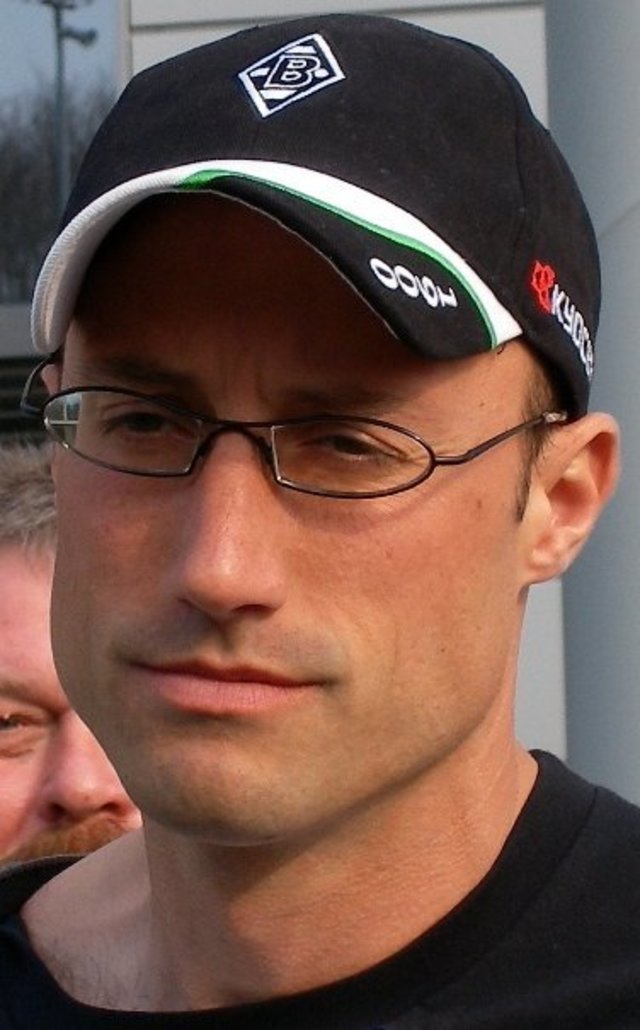Kasey Keller Doesn’t Hate the Portland Timbers (Or Anybody Else)

You have a long, deep knowledge of Northwest soccer culture. How does this week of festivity and attention for the All-Star game contrast with how the game was perceived here when you were at UP in late ‘80s and early ‘90s? Well, even back in ’89, when I played for one of the many versions of the Timbers, there were 12,000 people here for our first game. I think we all knew how passionate the area was for the sport, which has obviously increased so much since then. The surprise for me was that it took so long for MLS to recognize that they really needed to get into the Northwest market. Now, Portland and Seattle and Vancouver have kind of pulled San Jose into the Northwest rivalry. They’ve embraced their original brand, their history dating back to 1974, and it’s all so healthy. Why did it take so long?
How do you balance—or do you balance—your competing Seattle/Portland soccer loyalties? Look, I played for University of Portland and the Timbers. I have a lot of affection for the city. I’m on the Board of Regents at UP, I’m on the board of FC Portland. I’m good friends with Merritt Paulson. But I played for Seattle. To be honest with you, most players…when I played for Tottenham Hotspur, I didn’t hate Arsenal. When I played for Leiceister City, I didn’t hate Nottingham Forest. When I played for Borussia Moenchengladbach, I didn’t hate Cologne. Did I get myself in trouble by singing an anti-Cologne song after we won a match? Yes. I win a game here for Seattle, I celebrate, and now I’m in trouble with the Timbers Army. Of course.
A good friend of mine has seats for the Blazers. I came to a Blazers game during the pre-season of the Timbers’ first MLS season. There was a break near the end of the first quarter, and I hear the crowd starting to boo and get restive. And I think, uh oh. I look up at the big screen and, yes, it’s me. And it’s great! That’s sports. That’s rivalry. That’s what we all want.
The Seattle/Portland rivalry is definitely the most intense in MLS. Yes, and is there a handful of fans on both sides who think they want the English hooliganism thing? Sure. But for the most part it’s totally friendly. It doesn’t have the violence. I’ve taken a ton of photos over the last few days with people in Timbers jerseys; I even signed a few Timbers jerseys. It’s great.
You played for Millwall (an English club notorious for violent fan incidents). You can handle it. Mmm. You don’t want that. Trust me. You don’t want that.
What was it like for you, as a former US international, to see the huge outpouring of support in the US for the World Cup team? As we were in Brazil, we were seeing clips from around the US of the huge parties and crowds, and that was tremendous. I kept hearing from friends and family how there was basically no work being done from about 11 am on. Not only that, in Brazil, we saw 10,000 or 12,000 Americans at the fanfests in Rio, watching the games together—and they didn’t even have tickets to the tournament. They’re just there, hanging out, being a part of it. That’s when you know things are moving in the right direction.
Soccer evolves so quickly at the elite level. What has changed since you retired two seasons ago? Little things. When Pep Guardiola was at Barcelona, with the idea of possession, possession, possession—that worked for that team, so many, many teams decided they needed to emulate them. We have to play the Barcelona way. But then people began to realize, wait, it doesn’t necessarily work for us. It worked for them—they happen to have a guy named Lionel Messi. Now, it’s come back a little bit the other way: being more direct, taking shots from distance, whipping crosses into the box. There is no right way. There is no wrong way. A good coach recognizes what his players can do and sets up his team to get the most out of them. Early on, with the US National Team, Juergen Klinsmann was saying, we want to be possession based. But after awhile, it’s a results-driven business, and if you have to defend resolutely, have your goalkeeper make some saves, and score on a set piece to get a result—guess what, that’s what you do.
As you made the transition from player to media member, what aspects of the game do you have to study or pay attention to that you didn’t have to focus on before? It’s actually pretty similar. You’ve been in the game long enough, you know almost everybody. So what you need to do is have that little bit of concentration on the new guys, the guys who you don’t know. In broadcasting, if I have two 20-second spots in a pre-game, I’m not going to talk about the guy nobody knows about. But I have to know enough that when he comes into the game and scores a fantastic goal, I know it’s his first or second goal, or whatever. It’s the same when I was in goal: okay, who’s this kid? You don’t need to spend a ton of time, as a keeper, because a shot’s a shot. It doesn’t matter if it’s a kid who’s making his second appearance, or Lionel Messi. If he slams it into the top corner, I’m not saving it with research. But it’s good to have that general knowledge.
